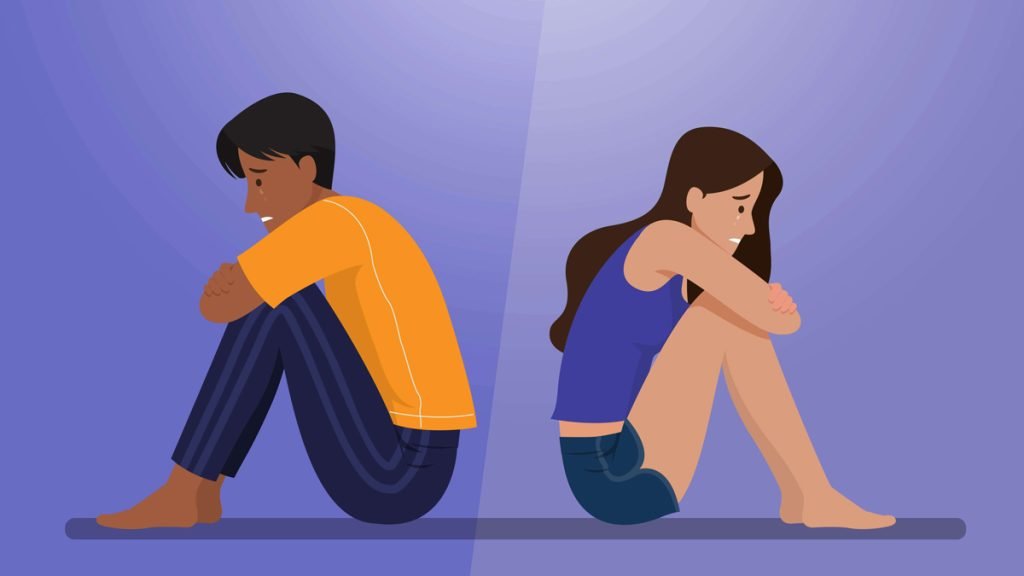Yesterday’s plane crash claimed 47 lives and created a wave of grief and sorrow that gripped the entire country. Despite the support and solidarity in these tragic and sorrowful moments, people are crying out for suffering in this tough and bereavement test of life. This is the essence of loss and the resulting grief. It doesn’t matter what your background is. Regardless of social status or social affiliation, loss or bereavement may surround you in ways you least expected. The cause of this bereavement can be anything from the death of a loved one, accidents, drug abuse or even a heart attack. Very few people turn to psychological counseling or support to cope with this bereavement.
Many people do not even think about such help. Some people seek help for it quickly while others slowly let it ruin their lives for decades. Jafar Ali is working as a Clinical Psychologist at Sadaqat Clinic and Willingways. He passed MS Clinical Psychology from Government College and University Lahore in 2015. He passed MSc in Applied Psychology, Institute of Applied Psychology, University of Punjab, Lahore in 2013. Whatever the reason, the fact remains that not everyone reacts to grief and loss in the same way. There are eight common questions that people face when dealing with grief.
Question #1: I don’t think I will ever be able to cope with the loss of my loved one’s death.
Answer: You don’t need to compensate for the death of your loved one because you need to consider your perspective on the tragedy. Death is a permanent reality. Instead of waiting painfully for your loved ones or things to come back, you have to move forward by remembering their beautiful memories, keeping them in their beautiful bitter memories during this difficult time in life. Even after precious people are gone, life goes on. Now you have to have the courage to accept this fact of life and move forward in an auspicious way. A weak reading on bereavement will only result in your grief and suffering becoming longer and longer.
Question No. 2: Years have passed since the death of my loved one, but why can’t I feel better in life?
Answer: Healing emotional wounds is completely different from healing physical wounds. There is no specific period or period of recovery from bereavement. Recovery from bereavement comes in small steps. Mourning occurs in layers, each layer must be healthy in turn. A recent bereavement overlaps with a past bereavement. Which still remains and thus the bereavements get mixed up and we don’t even realize that we are suffering from more than one bereavement at a time. Another way to measure your progress is to ask yourself some basic questions. Are there times in your life when you spend time away from thinking about or grieving your loss? Are there times when you laugh and feel better about yourself? One thing that helps you to be less cursing and complaining about yourself is to take care of yourself. Grief is a natural process. Look at things with courage and yourself
Question No. 3: I feel that I will not be able to survive without my life partner. I have suicidal thoughts. I have not shared this with anyone, including my therapist? How do I improve it?
Answer: People experience these types of feelings for many years after the death of their spouse. To deal with such a situation, take the help of professional psychologists and explain your problem openly and honestly. Your therapist will not think anything strange or make any judgments about you. Openly explain the problem, share your pain and suffering. Be sure to tell your therapist about your suicidal thoughts in order to better provide support.
Question No. 4: My best friend who supported me on occasion before the death of my beloved, but now does not give me time. Why isn’t my friend helping me?
Answer: The bitter truth is that the death of a loved one has changed you. After the death of a loved one, people are not who they used to be. It is also possible that your friend does not understand your pain anymore. Sit down with your friend and openly discuss whatever you feel is the reason for the distance. Tell your friend that his company means a lot to you. Another fact may be that many people tend to run away from bereavement situations to avoid saying or doing something wrong on such occasions. They see the good in keeping a certain distance.
Question No. 5: In the state of grief and sorrow, have I made many mistakes?
Answer: Everyone makes a lot of mistakes when grieving. Any action that people later regret or end up having a conversation with someone they never expected. It is enough for you to acknowledge these damages and if not dangerous and necessary, then make up for them. If someone isn’t willing to forgive you or isn’t willing to talk, admit it openly. Treat them with respect too. If things get better when you talk, that’s a good thing.
Question #6: My therapist wants me to take medicine but I don’t want to take medicine. What should I do in such a situation?
Answer: You can ask your therapist openly why it is necessary to take the medicine and then the decision is yours. But you have to consult your therapist about this. Depending on the symptoms of the disease, medication may help you and taking medication may be a better decision. Talk to your therapist if he says you can’t get better without it, then try medication.
Question No. 7: When I was very bereaved, my in-laws did not help me and even if they did, they had their own needs behind it. I don’t understand why they did this.
Answer: These people may not be able to express their grief to you. They are also going through bereavement and struggling with the loss of their loved one’s life. You have to avoid bitter tone while communicating with them. A bitter tone creates rifts in relationships.
Question No. 8: I feel alone. I feel like no one understands me, will anyone ever understand me?
Answer: Everyone reacts to grief or bereavement in their own way because each experience is unique. Even the response to the same bereavement varies. Sometimes people don’t feel comfortable even in support groups. It is very important at this time to seek the support of friends and relatives with whom you feel at ease.
Accidents, especially accidents that do not even occur in illusions, create situations that overwhelm you with grief and lead you to the abyss of mourning. Getting out of this painful cycle of bereavement may be difficult but not impossible. Professional help can be taken for this. Which will help ease your grief. This is the time in which the entire nation has to fight back and be strong in dealing with its grief. Our stable will help those who are dealing with the loss of loved ones and the resulting closeness.

